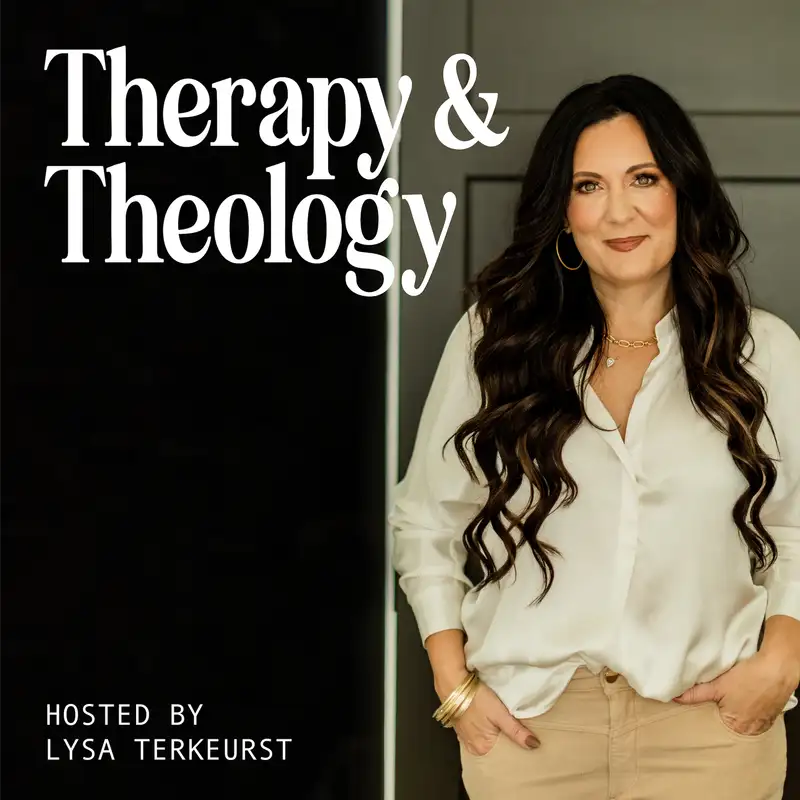S4 E5 | Signs of Codependency With Jim Cress
Jim Cress:
Hey, it's Jim Cress back with you again. So good to be with you. Let's talk about relationships and that dreaded word you hear so much about — we've heard about it for years — called “codependency.” What is that word? Sometimes that word, I've found, has been ... in the counseling world, it's been weaponized, or it's been so overused, and then maybe at times it's underused that we think we know the word or we don't know what it means. I'll give you my take on what it means here in just a moment.
Relationships — all of us have them — can be messy at times, but they're also a wonderful gift from God. It's where we live in, what's called in theology, trinitarian reflection of God: the Father, the Son, the Holy Spirit and back around. So we're designed to be in relationships, and as old — as far back — as you can get, these relationships are very, very messy. People aren't carrying their own load. They're not doing what they need to do. They're blaming other people for things and just not being responsible.
Well, relationships, that's where we're going to spend a little time here today. More specifically, I want to talk about, again, this word “codependency” and share with you just a few signs of codependency. You know what? You get your pen out and jot down in your own life, maybe in a journal: Where are some of the places that maybe — just hypothesize — I am being codependent? Don't just look at the facts of codependency. Look at the impact, and I encourage you to take a look at your life story and say, “Where was this in my history growing up?” Were you a people pleaser growing up? Was there someone who had an addiction in your family and you were trying to rescue them? There are a number of ways that you can look, as far as the context of relationships, especially growing up where codependency may have come from.
Well, we can go back to the 1970s and ’80s and the alcohol and drug field, and codependency came out of there. See the word “co-” as meaning “with” and “dependency” means someone's dependent on some chemical — for example, drugs or alcohol — and that person being the addict or having an addiction is ... You may say they're destroying their lives, and you watch someone do this, or you yourself are trying to do this or not do this now, and that is to rescue that person. I'm going to dump out their alcohol, or try to dump out their drugs, or get them to lose weight and to eat healthy or something else. You're, again, in codependency, working harder on that other person than they're working on themselves.
Sometimes it's been said that codependency is an addiction that you might have to what? People, places or things. Sometimes that comes out, I find, in parenting. I'll do everything to save my kids. I can almost, if not indeed, get in God's way that that person won't even feel like they have a felt need to go to God because I'm so busy saving their lives; in the end, I'm not saving them at all.
Maybe in your relationship, some signs of codependency for you would be ... See if you relate to this. You ever hustle for your worthiness? Maybe if I could save this person or get them to walk in a healthy way or maybe even get them to become a Christian, then finally I would feel worthy again. Do you work harder on any person in your life — watch — than they're working on themselves? Do you find yourself ever where someone's blaming you for their problems? “Well you caused me” ... Or people say, “You drove me to drink,” or it's part of your problem and are you taking on that blame? Some people will do that.
An enormous amount of time, for a lot of people in codependency, is just spent not even working on yourself. Progressive sanctification, we call it in the Bible, to work on myself is, I'm so busy working on someone else who is unhealthy to make sure they're OK. I think it's more than OK. I think at times you think you're going to literally save their life.
You know when a person who is in your life, if they're unhealthy, they'll say, "Don't you require anything of me! I don't have to be responsible." Responsible, and you can find a strange loyalty to that person that, again, is not really loving them well because you end up ... here's the word we use, isn't it? You end up “enabling” their behavior, and you don't want to do that. I'm not trying to enable it. I know, I don't believe you are trying it. It's not so much your motive; it's your modus operandi. The method of operating is enabling to that person.
Then I want you to ask this simple question. It's a tough one, sobering. Would I really be OK and have that emotional and spiritual self-regulation? Would I be OK if this person doesn't change? What will it say about me? Maybe it's in a marriage. Maybe it's again with parenting or someone you love or a good friend. But what if this person goes down a bad path and they're not healthy or they even were to die or be so addicted they ruin their lives? Would I be OK to say their problem ultimately is not my problem; I'm not really responsible? And again, you don't have just to quit on them. You can take them off your hook of responsibility and say, God into Your hands, I commit them.

